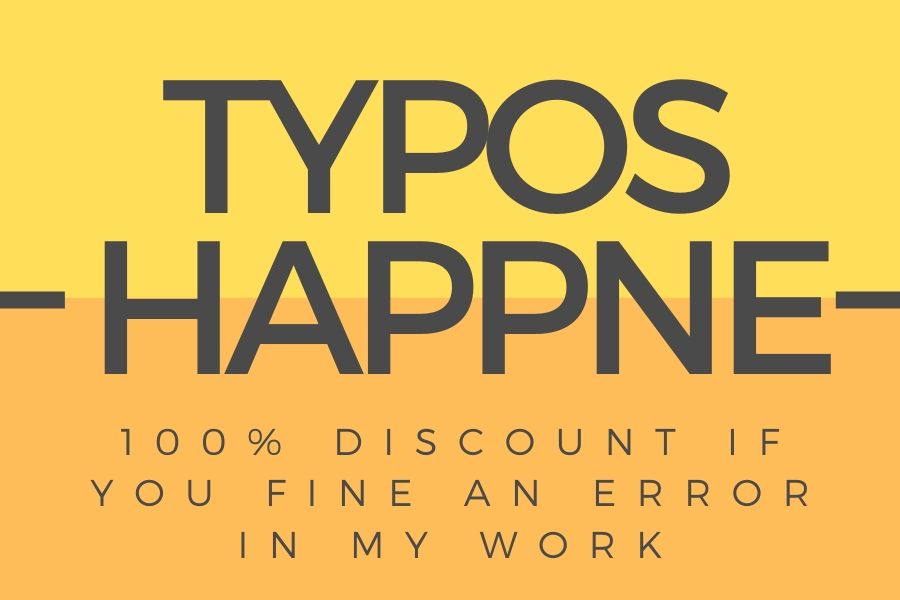Writers aren’t perfect. This may not be news to you. But occasionally we read or create typos that stay with us. Some become favorites, prompting smiles and giggles (and maybe embarrassment) for years to come. I asked writers, editors, and agents to share some from their experiences. Here are their favorites:
“I submitted a post called ‘4 Reasons Why Writers Should Clothe Themselves with Humility’ to Edie Melson’s The Write Conversation blog. Speaking from my perspective as a magazine editor, I encouraged writers to accept edits humbly, because growing as a writer involves acknowledging that no one’s writing is perfect and everyone can benefit from an editor looking over their work. I closed the paragraph with this sentence: ‘Every time (an editor points out an error), I have the choice to accept the feedback pridefully or with humbly.’ Let’s just say that when I read my mistake, out there on the blog for all to see, I humbly emailed Edie and asked for a little editing help” (Lori Hatcher, author of Refresh Your Faith, Uncommon Devotions from Every Book of the Bible).
“On an article about sharing faith: ‘Jesus was a master soul sinner.’ Yikes. Another time, I left the L out of a subhead on faith healing: ‘Beware of those who make healing the focus of their pubic ministry.’ And a major book publisher left an important NOT out of my chapter on sexual abstinence” (James N. Watkins, www.jameswatkins.com).
“A few years ago, I typed, ‘She might be bleeding internationally.’ Sister, that’s a mighty bad bleed. Let’s make that ‘internally.’ Which I almost just typed as eternally. One day I’m going to write a book titled Lost in Auto-Correct Land Without Her Man!” (Lenora Worth, www.lenoraworth.com).
“When I was in 8th grade, my father—Paul Belcher— had major lung surgery. Our church community rallied around him with support, including mentioning him in the church prayers. Luckily he has a great sense of humor and laughter is good medicine, because the first Sunday he was well enough to return to worship he was greeted with this note in the bulletin, no doubt the product of spellcheck gone awry: Paul Belched – please pray for strength and stamina to recover” (Courtney Ellis, author of Almost Holy Mama: Life-Giving Spiritual Practices for Weary Parents).
“In my book Unconditional, when one of the young characters (a child) is learning about milking cows, I wrote (something along the lines of) that he wrapped his small fingers around one of the utters, swollen with milk. Of course, it should have been udders. The editor and I got a great kick out of it, especially when I told him that I thought his correction was udderly ridiculous!” (Eva Marie Everson, www.EvaMarieEversonAuthor.com).
“My biggest typo was in an email to a book club which was having me come to speak. Their event was called the Kiss Button Event. When I sent my reply to attend, I typed, ‘I would be honored to speak at the Kiss Butt Event. Never saw it at all. The lady sent me an email back and said, ‘We’ve thought seriously about changing the name of our event but not quite in this direction.’ However, I’ve had more problems with autocorrect than typos, such as a text I sent to a writer. He’d sent me a devotion and I tried to text back, GREAT DEVO KEV. But as soon as I hit send, I saw the autocorrect change things. The text he got was, Great pole dance Kev” (Cindy K. Sproles, www.cindysproles.com).
“Far too often, I fail to proofread my mobile phone and its autotype corrects (somehow it thinks my name is Omar instead of Alan). I recently texted a student: ‘Yogurt class software is now loaded,’ instead of the your it was supposed to read. However, the worst incident occurred when it got my wife’s name wrong. I was in real trouble when Keira asked me, ‘Who is Keri?’ Proofreading saves lives!” (Alan Ehler, author of How to Make Big Decisions Wisely).
“Here are a couple typos I have seen recently: ‘He wanted to leave it all behind and go live on a dessert island.’ (Me too. Lemon meringue please.) And ‘We will share in His great joy when His glory is at least revealed.’ (least or last—either could be correct in the context)” (Nancy Lohr, Journey Forth Books).
“My assistant recently received a less-than-compelling email claiming, ‘My Client has assets valued ($13.700.000.00) domicile in a bank here in, am contacting you to stand as a legal beneficiary for the deceased assets, so that the proceeds of this fund can be paid to you, and money will be shared between both parties.’ Personally, I don’t care to be involved with deceased assets—though $13.700.000.00 ‘domicile’ is almost as impressive as $13.700.000.00 domestic” (Tamela Hancock Murray, www.stevelaube.com).
And “He Who Calls All the Shots” at the Steve Laube Agency cited the opening line of a cover letter accompanying an author’s proposal, which read, “I found your name on the inner net” (Steve Laube, www.stevelaube.com).











